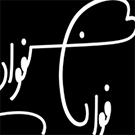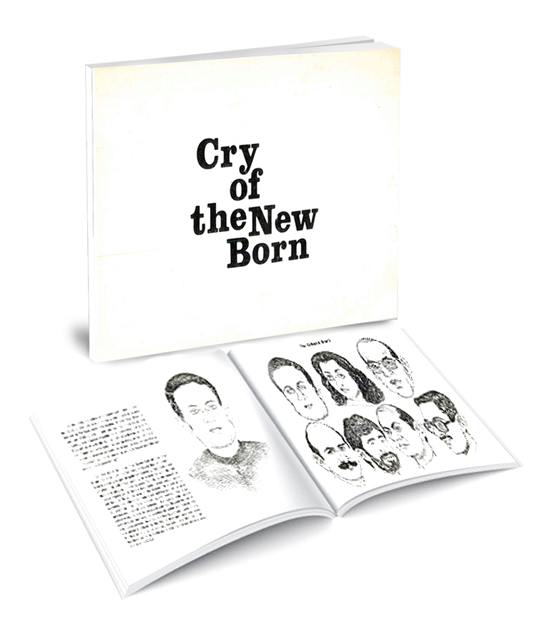“Cry of the New-born”
1987-88 | Civil Services Academy, Lahore
“Cry of the New-born” was an initiative of Mr. A.Z Faroqui who was the Director General (D.G.) of the Civil Services Academy, when we joined on a cold winter morning of 14th November, 1987.
C
ry of the New-born was an initiative of Mr. A.Z Faroqui who was the Director General (D.G.) of the Civil Services Academy, when we joined on a cold winter morning of 14th November, 1987. Mr. Faroqui was a man of strong convictions and resultantly strong likes and dislikes. After falling out with one government after another, most notably of late Zulfiqar Ali Bhutto in 1977, he had spent most of the last decade (1977-87) reading literature, philosophy, history, politics and religion. A scholar in his own right, and by all standards when we met him, he wrote beautiful English prose and considered horse riding, public speaking, poetry and literature essential qualities for a civil servant. Yet, like most of the “civil servant scholars” that Pakistan has produced, Mr. Faroqui was very seldom prepared to listen to an alternate view of an argument.
During the later-half of his life, his interest and conversion to a “practicing mussalmaan” only added to his convictions which resulted in what my colleagues called a “love-hate” relationship between the two of us. As he would try to force his views on virtually everything, from how civil servants should dress on a Sunday to the book review of “The Prophet” by Martin Lings, I simply couldn’t stop myself from arguing which in turn would result inevitably in harsh pronouncements. I always respected Mr. Faroqui for his vast knowledge, integrity and convictions, which he truly never kept to himself.
Assisted by Mr. Mohsin Akhtar and Mr. Javaid Masood, both members of the faculty from the income-tax group, he constituted the editorial board, of which I was also a member. Syed Mohsin Akhtar who was coordinating the entire effort did his best to introduce the probationers to “self satire” but failed miserably as the new officers’ corps didn’t see anything wrong with themselves. How could the probationers even think of making fun of themselves when they were all prepared to take the reins of the poor country which was, in their minds, waiting for them.
The editorial board was undoubtedly a strange mix of probationers. The bubbly Shershah Khan took his usual responsibility of arranging food and drinks while Dilawar Abbas, a PSP officer, tried to establish his right of primary review of all the writings under the provisions of the Pakistan Penal Code (PPC) and Code of Criminal Procedure (CrPC). Jahanzaib Khan, or Janjee as I fondly called him, was the only perfect bureaucrat in the group. He made the best use of his membership of the board to meet the D.G. ten times, on the pretext of work related to the publication, yet as the Almighty is witness he didn’t contribute a single word to the publication. While Fauzia Fakhar with her usual seriousness, refused to waste any time on the “pitiful lot”.
I remember that I was on my military attachment with the 7FF (frontier force), a celebrated unit of the Pakistan Army with an exceptional record on the battle ground (both before and after the independence of Pakistan), when I received a distress call from Mr. Mohsin Akhtar. With only 6 weeks to go in our common training programme the new-borns had either refused to cry and those few who had tried were barely audible. As a result, Mohsin sb wanted me to rush back to the Academy and edit the Urdu section particularly the pen sketches written in Urdu, while the D.G. had taken to writing the English ones himself. This got me off the remaining two weeks of my military attachment, which I spent at Lahore, Walton Campus all alone in the rather dilapidated infamous “Annexe” right behind the administrative block. I would use the night for work and sleep till 10-11 am, waking up to join Mohsin sb in his office to review the work done. I still count those 15 days as some of the best times spent in the civil service as Mohsin sb was a gem by all means, the finest breed of human beings that is fast becoming extinct. The Urdu section of the magazine was primarily my work, in particular the pen sketches, including my own.
Unfortunately, our successors couldn’t keep up the tradition, perhaps owing to the fact that A.Z. Faroqui sb or Syed Mohsin Akthar sb were no longer around to guide them, or perhaps the civil servants just forgot to laugh at themselves as we played with the lives of the fast-growing 200 million plus people who live in this land of the pure. I hope some of these selections will bring a smile to your faces and I am confident that you will love the flow and flair of Mr. Faroqui’s English prose (may Allah SWT bless him). I am certain that Faroqui sb must be arguing his way through to the heavens, if he hasn’t made it there already.
During the later-half of his life, his interest and conversion to a “practicing mussalmaan” only added to his convictions which resulted in what my colleagues called a “love-hate” relationship between the two of us. As he would try to force his views on virtually everything, from how civil servants should dress on a Sunday to the book review of “The Prophet” by Martin Lings, I simply couldn’t stop myself from arguing which in turn would result inevitably in harsh pronouncements. I always respected Mr. Faroqui for his vast knowledge, integrity and convictions, which he truly never kept to himself.
Assisted by Mr. Mohsin Akhtar and Mr. Javaid Masood, both members of the faculty from the income-tax group, he constituted the editorial board, of which I was also a member. Syed Mohsin Akhtar who was coordinating the entire effort did his best to introduce the probationers to “self satire” but failed miserably as the new officers’ corps didn’t see anything wrong with themselves. How could the probationers even think of making fun of themselves when they were all prepared to take the reins of the poor country which was, in their minds, waiting for them.
The editorial board was undoubtedly a strange mix of probationers. The bubbly Shershah Khan took his usual responsibility of arranging food and drinks while Dilawar Abbas, a PSP officer, tried to establish his right of primary review of all the writings under the provisions of the Pakistan Penal Code (PPC) and Code of Criminal Procedure (CrPC). Jahanzaib Khan, or Janjee as I fondly called him, was the only perfect bureaucrat in the group. He made the best use of his membership of the board to meet the D.G. ten times, on the pretext of work related to the publication, yet as the Almighty is witness he didn’t contribute a single word to the publication. While Fauzia Fakhar with her usual seriousness, refused to waste any time on the “pitiful lot”.
I remember that I was on my military attachment with the 7FF (frontier force), a celebrated unit of the Pakistan Army with an exceptional record on the battle ground (both before and after the independence of Pakistan), when I received a distress call from Mr. Mohsin Akhtar. With only 6 weeks to go in our common training programme the new-borns had either refused to cry and those few who had tried were barely audible. As a result, Mohsin sb wanted me to rush back to the Academy and edit the Urdu section particularly the pen sketches written in Urdu, while the D.G. had taken to writing the English ones himself. This got me off the remaining two weeks of my military attachment, which I spent at Lahore, Walton Campus all alone in the rather dilapidated infamous “Annexe” right behind the administrative block. I would use the night for work and sleep till 10-11 am, waking up to join Mohsin sb in his office to review the work done. I still count those 15 days as some of the best times spent in the civil service as Mohsin sb was a gem by all means, the finest breed of human beings that is fast becoming extinct. The Urdu section of the magazine was primarily my work, in particular the pen sketches, including my own.
Unfortunately, our successors couldn’t keep up the tradition, perhaps owing to the fact that A.Z. Faroqui sb or Syed Mohsin Akthar sb were no longer around to guide them, or perhaps the civil servants just forgot to laugh at themselves as we played with the lives of the fast-growing 200 million plus people who live in this land of the pure. I hope some of these selections will bring a smile to your faces and I am confident that you will love the flow and flair of Mr. Faroqui’s English prose (may Allah SWT bless him). I am certain that Faroqui sb must be arguing his way through to the heavens, if he hasn’t made it there already.

